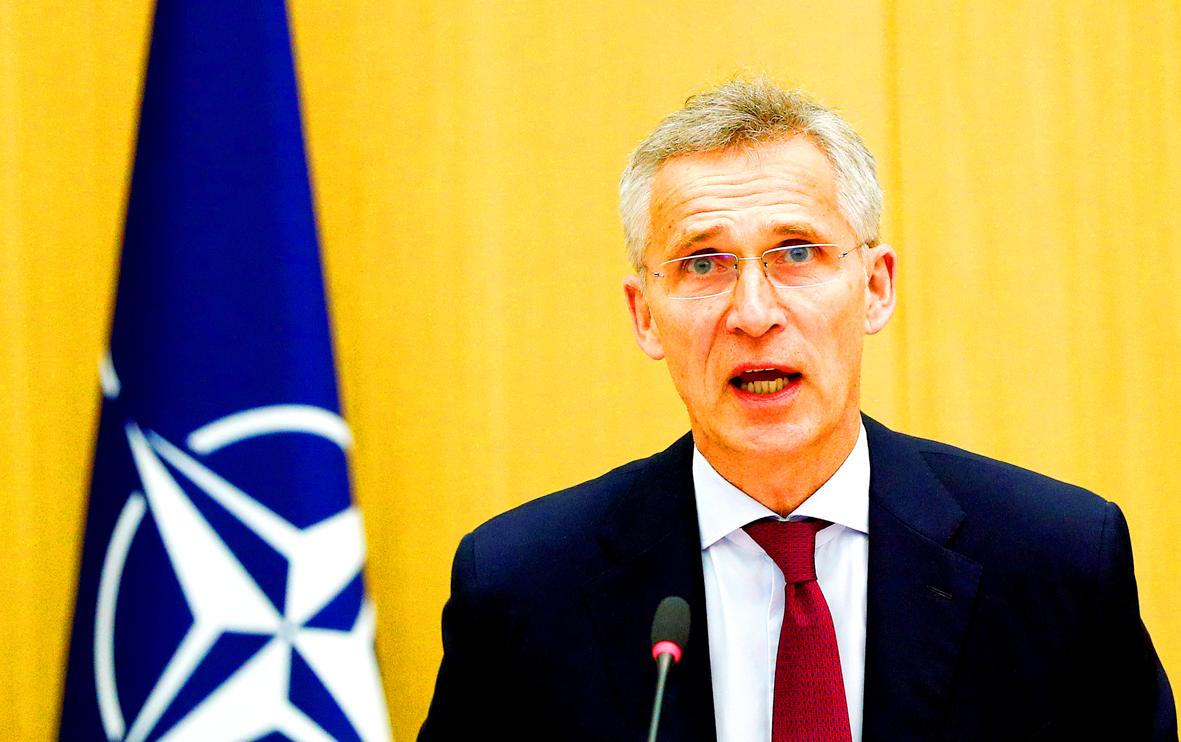NATO must think harder about how to handle China and its military rise, although Russia would remain its main adversary during this decade, a report on reforming the Atlantic alliance published yesterday said.
NATO 2030, prepared by a group of so-called “wise persons” and containing 138 proposals, comes amid growing doubts about the purpose and relevance of an alliance branded last year by French President Emmanuel Macron as “brain dead.”
“China is no longer the benign trading partner that the West had hoped for. It is the rising power of our century and NATO must adapt,” said one NATO diplomat who had seen the report prior to its publication, pointing to Chinese activity in the Arctic and Africa and to its heavy investments in European infrastructure.

Photo: Reuters
Part of NATO’s response should be maintaining a technological advantage over China, protecting computer networks and infrastructure, the diplomat said, citing the report, although not all recommendations would be adopted.
The 30-member alliance could also forge closer ties with non-NATO countries such as Australia and focus more on deterrence in space, where China is developing assets, the report said.
NATO Secretary-General Jens Stoltenberg on Monday said that China’s rise posed “important challenges to our security.”
“China is investing massively in new weapons. It is coming closer to us, from the Arctic to Africa. China does not share our values ... and tries to intimidate other countries,” he told a news conference in Brussels, urging allies to come together on the issue.
NATO should consider including China in NATO’s official master strategy document, its “Strategic Concept,” diplomats cited the report as saying, although it stopped short of declaring the country an adversary.
In other recommendations, the report suggested that NATO foreign ministers meet more regularly and called for a strengthening of the secretary-general’s role as an international mediator.
The report was scheduled to be discussed by NATO foreign ministers yesterday before being presented to the alliance’s heads of state and government next year.
Tensions over NATO’s ability to act remain, from anger over Turkey’s decision to buy a Russian weapons system to US doubts over Europe’s commitment to its own defense, to US President Donald Trump’s call for it to do more in the Middle East.
However, Eastern European allies, fearful of Russia since Moscow’s 2014 annexation of Crimea from Ukraine, are concerned about shifting too many resources away from NATO’s core task of defending Europe.
CHINESE REACTION
In Beijing yesterday, Chinese Ministry of Foreign Affairs spokeswoman Hua Chunying (華春瑩) said China hoped NATO would adopt the correct outlook toward the country.
She told a regular briefing at the ministry that China stood ready to engage in dialogue with the alliance.

AGING: As of last month, people aged 65 or older accounted for 20.06 percent of the total population and the number of couples who got married fell by 18,685 from 2024 Taiwan has surpassed South Korea as the country least willing to have children, with an annual crude birthrate of 4.62 per 1,000 people, Ministry of the Interior data showed yesterday. The nation was previously ranked the second-lowest country in terms of total fertility rate, or the average number of children a woman has in her lifetime. However, South Korea’s fertility rate began to recover from 2023, with total fertility rate rising from 0.72 and estimated to reach 0.82 to 0.85 by last year, and the crude birthrate projected at 6.7 per 1,000 people. Japan’s crude birthrate was projected to fall below six,

Conflict with Taiwan could leave China with “massive economic disruption, catastrophic military losses, significant social unrest, and devastating sanctions,” a US think tank said in a report released on Monday. The German Marshall Fund released a report titled If China Attacks Taiwan: The Consequences for China of “Minor Conflict” and “Major War” Scenarios. The report details the “massive” economic, military, social and international costs to China in the event of a minor conflict or major war with Taiwan, estimating that the Chinese People’s Liberation Army (PLA) could sustain losses of more than half of its active-duty ground forces, including 100,000 troops. Understanding Chinese

US President Donald Trump in an interview with the New York Times published on Thursday said that “it’s up to” Chinese President Xi Jinping (習近平) what China does on Taiwan, but that he would be “very unhappy” with a change in the “status quo.” “He [Xi] considers it to be a part of China, and that’s up to him what he’s going to be doing, but I’ve expressed to him that I would be very unhappy if he did that, and I don’t think he’ll do that. I hope he doesn’t do that,” Trump said. Trump made the comments in the context

SELF-DEFENSE: Tokyo has accelerated its spending goal and its defense minister said the nation needs to discuss whether it should develop nuclear-powered submarines China is ramping up objections to what it sees as Japan’s desire to acquire nuclear weapons, despite Tokyo’s longstanding renunciation of such arms, deepening another fissure in the two neighbors’ increasingly tense ties. In what appears to be a concerted effort, China’s foreign and defense ministries issued statements on Thursday condemning alleged remilitarism efforts by Tokyo. The remarks came as two of the country’s top think tanks jointly issued a 29-page report framing actions by “right-wing forces” in Japan as posing a “serious threat” to world peace. While that report did not define “right-wing forces,” the Chinese Ministry of Foreign Affairs was